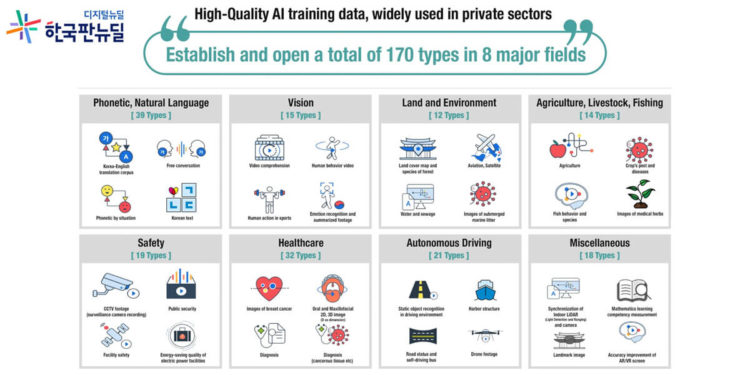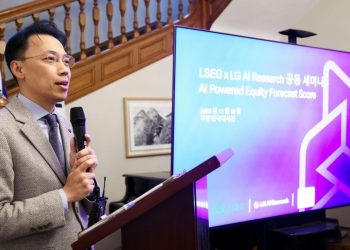As part of South Korea’s Digital New Deal, the Ministry of Science and ICT (MSIT) kicked off the Data Dam project in collaboration with the National Information Society Agency. Moreover, the two parties managed Data Dam’s release of around 170 high-quality AI training data types to 8 essential industries.
Upholding the Digital New Deal
Recently, MSIT emphasized Data Dam’s importance in enhancing the nationwide digitalization initiative, significantly helping sectors adopt innovative technologies and services. Data Dam also enables the South Korean digital economy to adjust and prepare for the forthcoming post-COVID-19 era.
Furthermore, the Data Dam project functions as one of the Korean Digital New Deal’s foundations. Data Dam also aims to give every individual and business easy access to beneficial information, meeting their diverse needs.
Distributing AI Data Across Industries
After Data Dam gathers information from public and private sectors, it would share the accumulated valuable data across numerous areas. Besides disseminating AI information, Data Dam would actively process, standardize, and use data to build a comprehensive AI database.
Some of the sectors Data Dam would support include agriculture and livestock, autonomous driving, healthcare, land and environment, phonetics and language, safety, and vision. The project would also deploy AI data to miscellaneous areas such as LiDAR technologies, AR, VR, and mathematics competency measurement.
MSIT also distributed the AI data on AI Hub, an integrated data platform. Since the Data Dam began operating, AI content materials have remarkably increased. As a result, these AI contents positively affect various societal spectrums, including education, finance, healthcare, industrial operations, and transportation.
For instance, in the phonetics and language area, Data Dam’s Korean dialect data improved existing voice-based AI platforms lacking in dialect recognition technologies. The performance evaluation results also indicated that Data Dam enhanced multiple services’ spoken dialect recognition rate by 12%.
Strengthening Data Dam as a Nation
Businesses, experts from public and private sectors, government agencies, and other organizations helped build, verify, and manage Data Dam. MSIT also utilized cloud-sourcing technologies, encouraging citizens with different backgrounds to participate in the data collecting and processing.
In addition to advancing AI service development, Data Dam would considerably help startups and small and medium-sized businesses. In particular, the AI data would aid them in budget and human resource departments.
“We will continue to provide high-quality data for AI training and spare no effort to make data accessible to every individual and business,” said Lim Hye-Sook, Minister of MSIT. Lim also stated that MSIT expects the different industries to widely utilize the Data Dam’s data rollout in propelling innovations.







